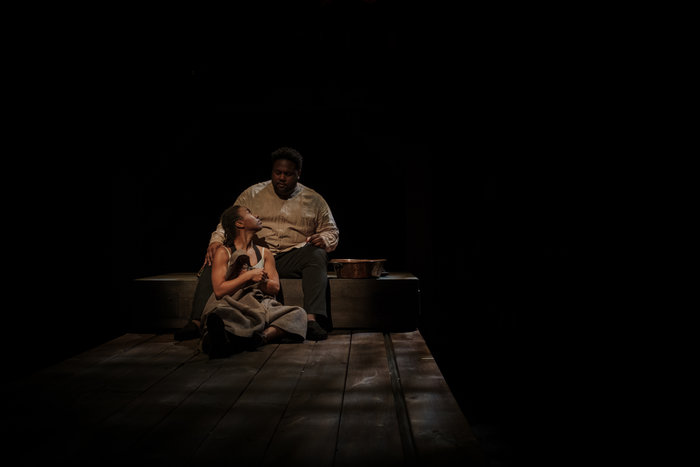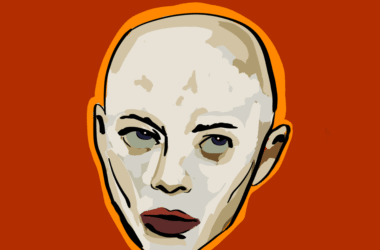There’s a smug detachment that accompanies the way a lot of Canadians talk about their past. Despite our country's tradition of violence and systematic oppression, many Canadians perceive our history to be bemusedly boring—something to be admired from afar but never thoroughly confronted or engaged with. We too often have the tendency to excuse our country’s complicity in history’s great systems of oppression, to lay the blame of race, class, and gender-based injustices squarely at the feet of our neighbour to the South. Even now, when Canada is seemingly beset on all sides by the bigotry and hatred of radical right-wing populism, many of us point to our Liberal Prime Minister and government and multicultural values and say “it could never happen here.”
This attitude is what makes Angélique such an important play for this particular political moment. Written by the late Lorena Gale in 1998, the play is an unflinching, stomach-churning look at Canada’s complicity in the international tragedy of slavery. It tells the story of Marie-Josèph Angélique, a slave who arrived in Montreal in the summer of 1730 at the age of 20. There, she faced physical and sexual violence, bondage, and degradation before she was ultimately hanged on trumped up charges of setting fire to the city of Montreal.
Steeped in such violent and grotesque subject matter, Angélique is often hard to watch. The production’s stark, white lighting and sparse staging provide a viewing experience that feels both cold and claustrophobic, forcing the viewer to face the play’s atrocities directly.
Nevertheless, the play’s multivalent and deeply complex performances elevate its characters above simple victims and monsters. Jenny Brizard in particular plays the title character with a revelatory ferocity, depicting a young woman who never fully succumbs to despair despite her abhorrent circumstances. This is a play about black pain and white oppression, but Angélique never feels like a placeholder for political aims. Indeed, she suffers terribly, but also finds fleeting joy in the darkest of places. It’s a delicate balancing act, but one that Brizard performs with effortless grace. Her spellbinding performance provides a steady base for the play’s ambitious structure to build upon.
Far from a simple period piece, Angélique juxtaposes Canada’s history of slavery with modern racial issues. This is done almost literally in the play’s costuming, where colonial jackets blend with modern outerwear and town criers morph into newscasters at the drop of a hat. With the exception of some forced moments in the play’s final act, for the most part this is done elegantly, successfully reshaping the way the viewer sees contemporary Canada as well as its past.
Angélique is a tour-de-force, both politically relevant and emotionally resonant. Though essentially a play about the past, it contains an important map towards a better future for our country, one where black pain is not trivialized and black voices are not silenced. In a society where ‘multiculturalism’ is often used as a crutch to avoid having meaningful discussions about race, it is powerful, essential viewing.
Angelique, a co-production between Tableau D'Hôte Theatre and Black Theatre Workshop, is playing in The Studio at the Segal Centre for the Performing Arts at 5170 Chemin de la Côte Ste Catherine until April 2. Tickets are $27 general admission, $24 for seniors, and $22 for students and union members. Visit www.blacktheatreworkshop.ca/angelique/ for more information.







